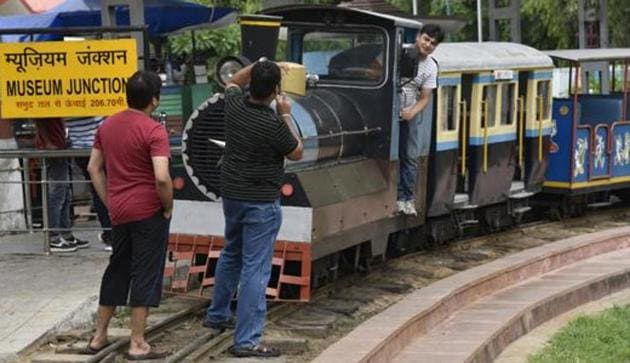Soon, Ajmer to get a rail museum
The museum will have on display implements and paraphernalia of the metre gauge trains and tracks.
Ajmer will soon have a new tourist attraction in the form of a railway museum, a top official of the North Western Railway (NWR) official said on Sunday.

The museum, the first of its kind in the railway division, will have on display implements and paraphernalia of the metre gauge trains and tracks, the official said.
North West Railway chief public relations officer Tarun Jain said the Ajmer Municipal Corporation will submit its detailed project report this month and the railway museum will cost ₹ 3.5 to ₹4 crore.
It will be built with the help of Union ministry of urban development and the state government, he said.
The rail museum will have a saloon that will be converted into restaurant general coach, covered wagons, locomotives, steam crane with dummy, toy train, signalling, meter gauge track, along with heritage items, including wheel sets, reclaimed diesel components–engine blocks, expressers, pistons among others besides trolleys and bogies and other heritage items of the railway.
The railway museum will be set up at the existing electrical production unit at Nasirabad Road in Ajmer, depicting the centuries-old railway heritage.
Renovation of existing building spread over 2,000 sqm and re-development of the surrounding area of 6,335 sqm to give it a heritage look, Jain said.
He further said that paintings adorn the walls depicting the heritage of Ajmer since it was established in the 7th century.
Replying to question on why Ajmer was chosen for setting up the rail museum, Jain said the Ajmer division of the NWR was founded in 1956.
It, however, has a rich historical background, he said.
“In 1869, the then newly formed Rajasthan State Railways took up the construction of the metre gauge line through Rajasthan. The Rajputana-Malwa Railway was the first railway in India to be constructed on a metre gaugeline and the first railway to be built and operated under the British government in India.”
In January 1871, the first meter gauge was established and the Ajmer-Ahmedabad section was constructed between 1878 and 1881.
In 1896, the Udaipur-Chittorgarh section was constructed by the Mewar State Railways and later merged with the BB&CI (Bombay, Baroda and Central India) Railways in 1920.
The headquarters of the Rajputana-Malwa Railway was first set up in Agra and then shifted to Ajmer, Jain said.
The foundation stone for the office building was completed in 1884, was laid by the British Governor General on March 8, 1881.
The majestic heritage building became the office of engineer in chief of the Rajputana and Marwar Railway and later the BB&CI Railway. It now houses the office of the Ajmer divisional railway manager.
The Ajmer loco workshop is one of the oldest railway workshop set up by the British in India.
Established in 1877, the workshop has made some valuable contribution in its long years of service.
The first ever metre gauge steam locomotive rolled out in 1895.
It created history by building the first locomotive in Indian--the F1 class locomotive up to 1949 and the last locomotives from Ajmer loco workshop were YP and XT1 class.
Ajmer workshop has built as many as 467 class steam locomotives for the Indian railways, Jain said.
The Ajmer carriage workshop, which commenced building rolling stock in 1877, has also made some interesting contributions to the war efforts during the Second World War, Jain said.
The historical facts reflect the great heritage of the Ajmer railway, which requires to be preserved forever, he said. Ajmer draws pilgrims from across the world to dargah of Kwaja Moinuddin Chisty and Pushkar.
The rail museum will help in promoting tourism in Ajmer and will also educate children who can appreciate the advancement in technology made over the years.
Ajmer city being renovated under the ‘Hriday’ scheme of Union urban development ministry, thus assistance is being sought from the ministry under the scheme to set up rail museum, Jain said.






